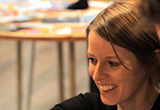As the government look set to make an announcement on shielding, Ceinwen Giles discusses the impact that shielding is having on patients and their families
 Way back at the start of April, I got a phone call from my GP surgery informing me that I should be shielding. This was after I’d previously been told—by the same GP surgery—that I didn’t need to shield, and had also been told by one of my specialist nurses that, although my immune deficiency made me “vulnerable”, I was less vulnerable than others because my heart and lungs are in “pretty good condition.” Confusion, exasperation, and fear were the primary emotions that I felt though much of the early phases of the pandemic.
Way back at the start of April, I got a phone call from my GP surgery informing me that I should be shielding. This was after I’d previously been told—by the same GP surgery—that I didn’t need to shield, and had also been told by one of my specialist nurses that, although my immune deficiency made me “vulnerable”, I was less vulnerable than others because my heart and lungs are in “pretty good condition.” Confusion, exasperation, and fear were the primary emotions that I felt though much of the early phases of the pandemic.
Looking back, however, I realise that no matter how confused I was about my level of vulnerability to covid-19 and its impact, there was at least some clarity about what I needed to do: stay indoors, stay away from people, and work from home. For my husband and daughter, the parameters were pretty clear too; home schooling for my daughter and working from home for my husband.
As time passed, however, adhering to strict social distancing measures has become more difficult and more fraught, primarily because I’ve increasingly needed to balance protection of my physical health with the emotional wellbeing of a child who desperately misses her friends, activities, and school. As restrictions have eased for many, guidance for “shielders” has seldom been updated and has not addressed the questions that many like me have.
If I’m honest, I feel like the shielding guidelines assume that those with serious underlying health conditions are of little value to society. What other explanation can there be for telling people that they have to stay inside for weeks on end and distance inside their homes from their family members, while making no reference to how to weigh up the potential risks and consequences of shielding, while also having to work or care for children (or indeed caring for someone of any age)? The guidance assumes that we are the cared for, not the carers and certainly not people who are economically and socially active or valuable.
As time has worn on, my daughter has increasingly experienced feelings of sadness, worry, anger, and anxiety. I increasingly feel like I’m in prisoner’s dilemma—the sort that comes from game theory and examines the conflict between rational self-interest and cooperation. In my version of the game, however, there is no outcome in which everyone wins.
What is best for me—isolation—may be worse for my child because it increases her loneliness and isolation (and also causes me misery, because there is hardly a more awful feeling than making your own child suffer to keep you safe).
Yet an approach which benefits my daughter might end badly were I to catch coronavirus. If she has a playdate with a friend, she will no doubt benefit from the interaction—but if her friend’s family has ignored some of the social distancing guidelines and attended barbeques and beach parties, am I risking a catastrophic infection? If she returns to school, which she is desperate to do, what level of risk does this present? I am now forced regularly to examine not only how well we have adhered to the guidelines, but also how well every single person we know has done.
Guidance on shielding currently makes no mention of what to do if you have children, but I know that I’m not alone. I’ve read heart-breaking messages on Shine Cancer Support’s online forums, for example, where parents with cancer have mentioned that, due to shielding, their children haven’t been outside for months. Many, like me, are confused about how their children can return to school if it means that they might bring home covid-19, but they’re also worried about the long-term physical and emotional impact on their children of living indoors and staying away from friends. It is one thing to protect your own health, but quite another to do it at the expense of those you love the most.
As the conversations around covid-19 have become politicised, it has become more and more difficult to discern what is based on scientific evidence and what is based on political ambition.
However, with lockdown restrictions easing for many, I desperately hope that those who develop the guidelines for the very vulnerable work hard to develop a greater understanding of who the vulnerable are, and the complexities of our lives. We need to have some grown up conversations about how individuals can live well, while also protecting their health. While recognising that there may never be “no risk” of covid-19 infection, it would be extremely helpful for policymakers to develop guidance to assist people in assessing their particular levels of risk, and to understand what low risk activities might be reasonably undertaken given that we—and our families—cannot all stay in our houses and flats indefinitely.
Ceinwen Giles is a director at Shine Cancer Support and a trustee of the Point of Care Foundation.
Competing interests: See a declaration of interests on bmj.com
